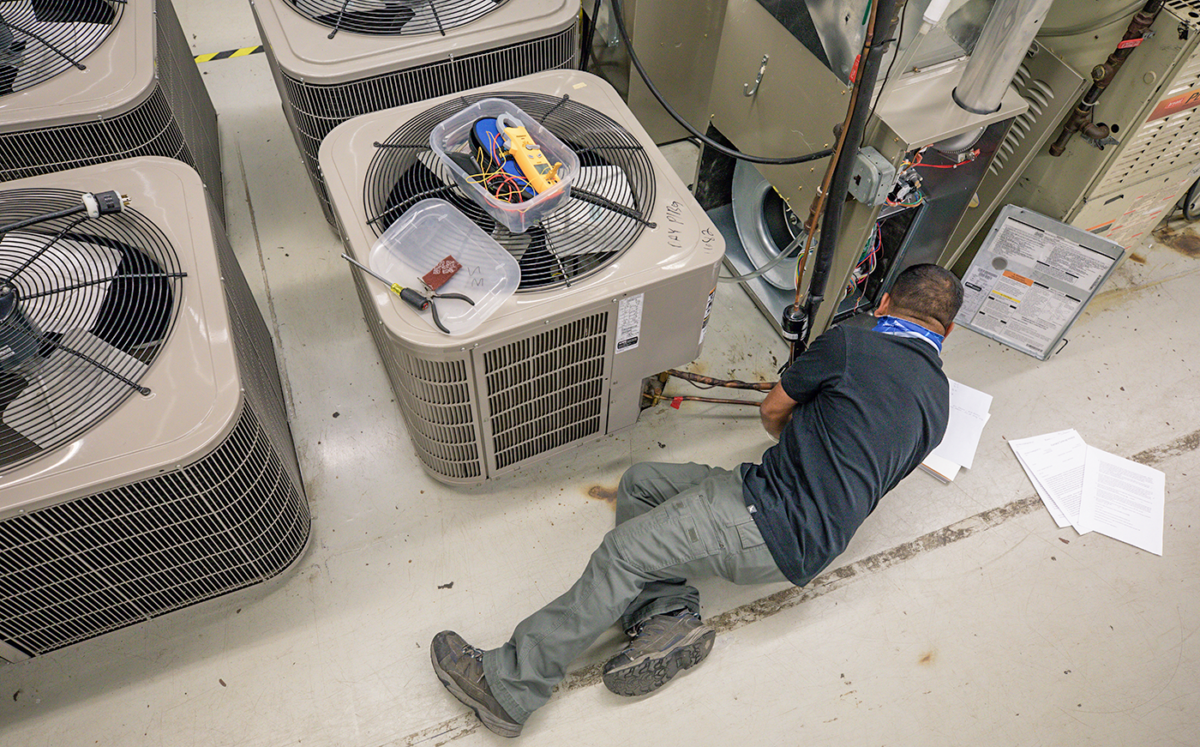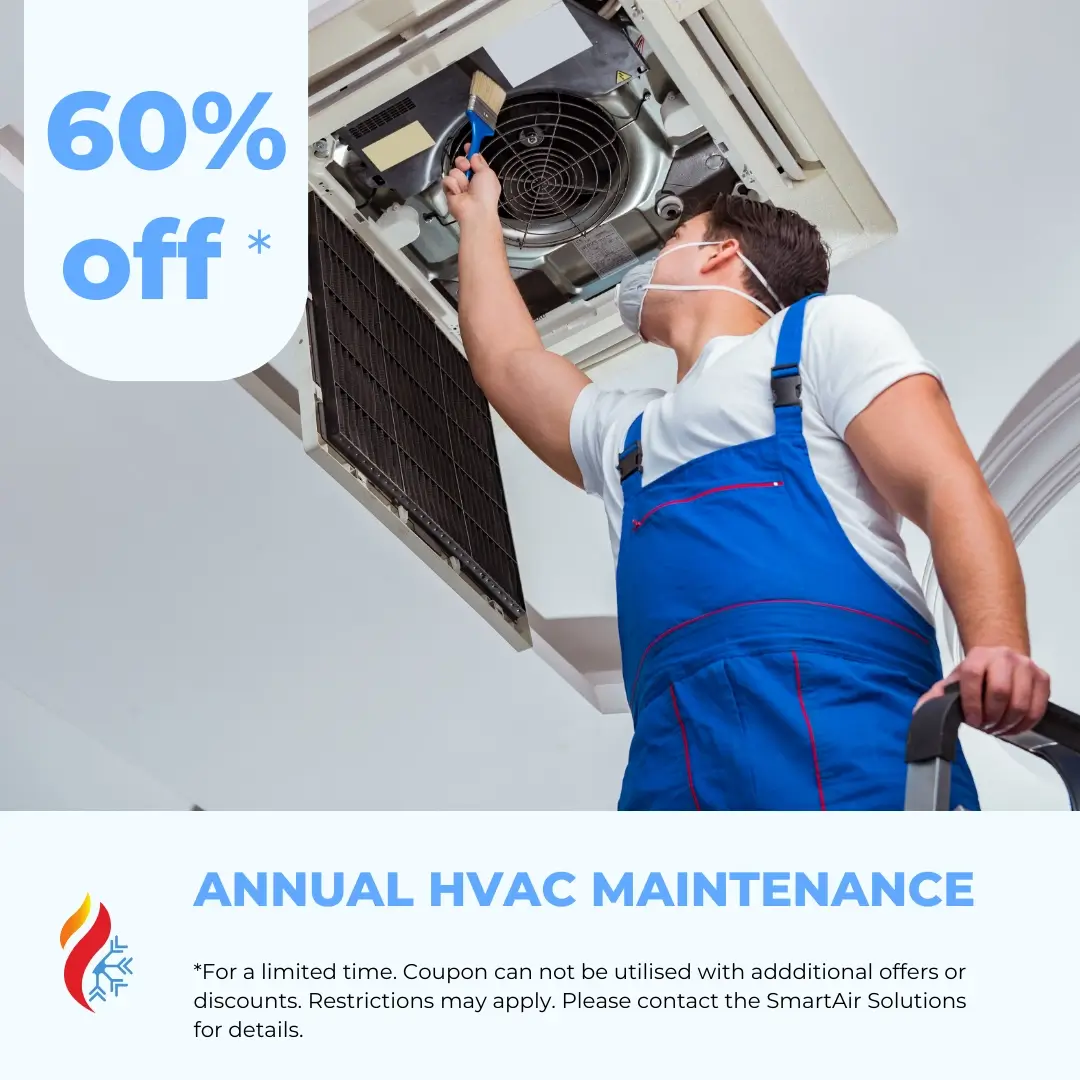Residential AC System Installation for Effective Home Cooling
Residential AC System Installation for Effective Home Cooling
Blog Article
An Extensive Consider Cooling And Heating Solutions and Their Influence On Energy Effectiveness and Expense Savings
With technological improvements like smart thermostats and high-efficiency elements, the potential for maximizing system efficiency is large. As we check out the intricate connection in between HVAC systems and functional prices, including the change in the direction of ecologically friendly options, the concern occurs: exactly how can these techniques be properly implemented to take full advantage of both ecological and economic advantages?

Value of Cooling And Heating Systems
cooling and heating systems are an essential part of modern-day buildings, playing a crucial role in preserving comfortable and healthy and balanced indoor environments. These systems, incorporating air, home heating, and air flow conditioning, are crucial for regulating temperature, moisture, and air top quality, thereby making certain the well-being of residents. Effective heating and cooling systems contribute considerably to creating an ideal indoor environment, which is crucial for both domestic and commercial areas.
In business structures, a/c systems are important to supplying a efficient and risk-free setting. By controlling indoor climate conditions, these systems help avoid the development of mold and the spread of air-borne impurities, thus guarding the health and wellness of customers and staff members. Additionally, in residential setups, a/c systems enhance living problems by supplying consistent thermal comfort and enhancing interior air high quality, which is important for overall health.
In addition, the design and upkeep of a/c systems have a straight influence on energy intake and operational costs. Effectively designed and kept systems can significantly lower energy usage, causing reduced energy expenses and a smaller carbon footprint. The performance of these systems thus plays an essential role in advertising sustainability and energy conservation within buildings, highlighting their relevance in the contemporary building landscape.
Advances in A/c Modern Technology
Advancement in cooling and heating technology is revolutionizing the way buildings handle indoor climates, introducing a new age of performance and control. Recent developments have actually focused on optimizing power consumption while improving user comfort. One noteworthy growth is the assimilation of wise thermostats, which use synthetic intelligence to learn occupancy patterns and adjust temperature levels as necessary, minimizing unneeded energy use.
Variable Cooling Agent Circulation (VRF) systems stand for another considerable leap forward. These systems enable accurate temperature control in various zones of a building, enhancing convenience and lowering power waste. VRF technology is especially helpful for large business rooms, supplying adaptability and scalability.
Additionally, the advent of Net of Things (IoT) devices has changed cooling and heating systems into interconnected networks with the ability of real-time data collection and analysis. This connection allows anticipating upkeep, ensuring systems run at peak efficiency and lessening unforeseen downtime.
Moreover, developments in products and style, such as making use of high-efficiency coils and compressors, have boosted overall system performance - Heating Contractor. The adoption of eco-friendly cooling agents also highlights the sector's dedication to sustainability
These technical advancements are critical in lowering operational prices and environmental influence, establishing new criteria for constructing environment management.
Heating And Cooling Upkeep and Effectiveness
Guaranteeing optimal efficiency of a/c systems extends beyond technological advancements; it also rests on my website efficient maintenance practices. Normal upkeep is essential for maintaining efficiency, reducing energy usage, and expanding the life span of cooling and heating systems. The key goal is to guarantee that all parts work at their peak potential, therefore decreasing power waste and preserving consistent indoor convenience degrees.
Regular upkeep tasks, such as cleaning or changing air filters, checking refrigerant degrees, and examining ductwork for leaks, are crucial for protecting against unneeded stress on the system. Filthy or clogged filters can obstruct air flow, causing the system to function more challenging and eat even more power. Also, poor cooling agent levels can decrease cooling performance, bring about higher functional expenses.
In addition, routine assessments by certified specialists can determine potential problems prior to they intensify right into expensive repair work or system failures. These evaluations frequently include checking electrical connections, calibrating thermostats, and making sure the total stability of the heating and cooling system. By addressing minor troubles early, homeowners and companies can prevent unanticipated failures and enhance energy performance.
Affordable Heating And Cooling Solutions
For those looking to obtain the most out of their air, heating, and air flow conditioning systems without breaking the financial institution, checking out affordable HVAC remedies can make a significant distinction. One instant measure is to purchase programmable thermostats, which enable users to set details temperatures for different times of the day, maximizing power use and minimizing unneeded consumption. By automating temperature adjustments, house owners can attain substantial financial savings on power expenses.
Routine upkeep is another essential part of cost-effective HVAC management. Guaranteeing that filters are cleaned or replaced regularly, ductwork is sealed, and devices are serviced by specialists can prevent costly repair work and enhance system long life. Preventative upkeep not only preserves system efficiency yet also assists in avoiding unexpected failures that can lead to expensive emergency fixings.
In addition, retrofitting existing systems with energy-efficient parts, such as variable rate motors or high-efficiency compressors, can be a sensible financial investment. These upgrades boost operational efficiency, lower energy use, and can frequently be executed at a portion of the price of a complete system replacement.
Environmental Impact Reduction
Lowering the ecological influence of HVAC systems is vital in today's search of lasting living. Cooling and heating systems are substantial factors to power intake, representing almost 40% of power usage in industrial structures. This energy demand typically depends on nonrenewable fuel sources, bring about greenhouse gas my response exhausts and ecological degradation. Transitioning to much more efficient systems, such as those using renewable resource sources, can substantially minimize these influences.
Technological improvements in cooling and heating design and operation, consisting of the assimilation of smart thermostats and energy-efficient warmth pumps, are pivotal in decreasing carbon footprints. These innovations allow for optimized power use, lessening wastefulness and improving general system performance. In addition, adopting regular upkeep methods makes certain cooling and heating systems operate at peak performance, more reducing unnecessary energy consumption.
Moreover, making use of eco pleasant cooling agents is important, as traditional cooling agents, like CFCs and HCFCs, have been eliminated because of their ozone-depleting buildings. Modern options, such as hydrofluoroolefins (HFOs), deal decreased ecological threats, lining up with international environmental methods. By embracing these lasting practices, a/c services can play a transformative function in decreasing ecological effects, promoting power effectiveness, and promoting a more lasting future.
Verdict

Additionally, the style and upkeep of Heating and cooling systems have a direct influence on energy usage and functional costs. Normal maintenance is crucial for sustaining efficiency, minimizing power usage, and prolonging the life period of Cooling and heating systems. Heating and cooling systems are significant contributors to power intake, accounting for nearly 40% of energy use in business structures. In addition, embracing routine maintenance practices ensures A/c systems run at peak effectiveness, additional reducing unneeded company website energy consumption.
The transition to ecologically friendly HVAC systems even more advertises and lowers operational prices sustainability. (Heating Contractor)
Report this page